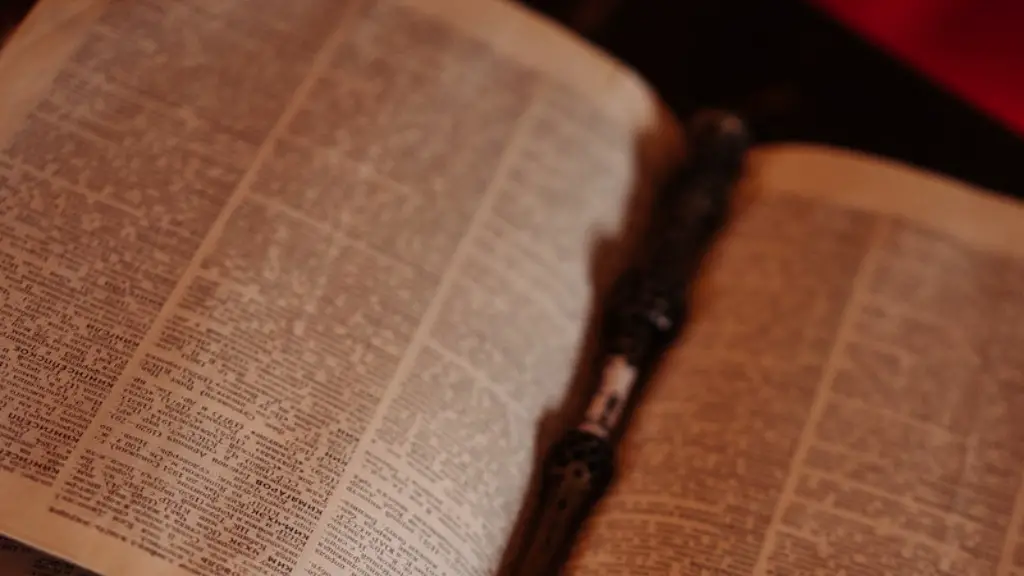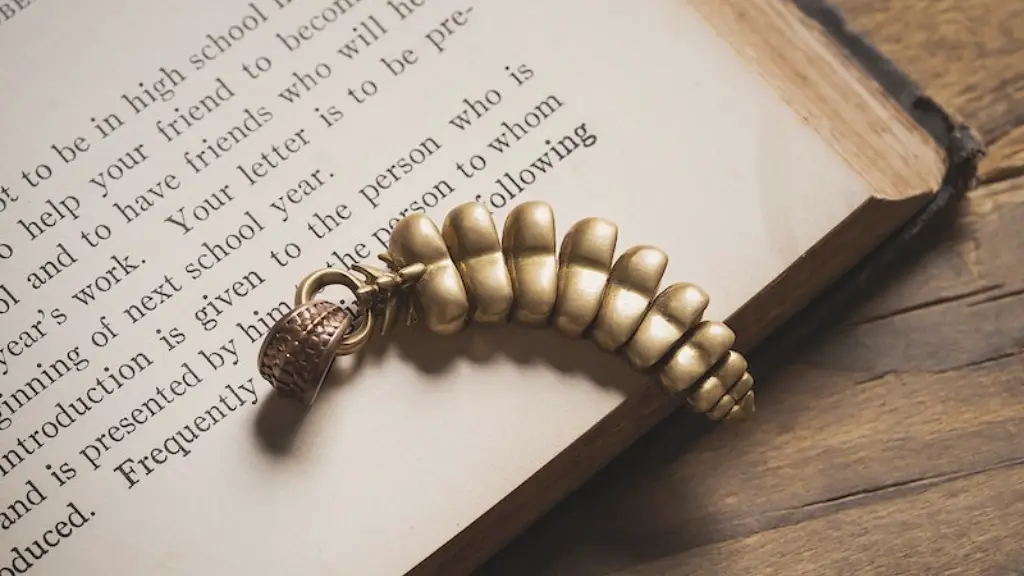Impactful Words
Writing poetry is a creative endeavor that requires careful planning and work. In order to create a poem that is both lyrical and meaningful, writers must choose the right words to achieve their desired effect. Rhyme is one of the most important tools a poet has to bring their poem to life. Knowing how to make your words rhyme can have a profound effect on the success of your poem.
Types of Rhyme
Rhyme comes in many forms. The different types of rhyme can be categorized based on sounds, syllables, and patterns. End rhyme is one of the most common forms of rhyme, which occurs when the last syllables of two or more lines of poetry sound the same. Internal rhyme is when two syllables within the same line share similar sounds. Slant rhyme, also known as half-rhyme, consists of two words that almost share a certain kind of sound.
Choosing the Right Words
When attempting to make your words rhyme, there are several helpful strategies you can use. Make a list of the words you want to use in your poem. To help them rhyme, create an accompanying list of words that could be substituted or added. Consider the meanings of the words and the poetry’s overall message when making your substitutions. Also think of rhyming words that have similar sounds, but that are spelled differently.
Rhythm and Meter
In addition to rhyme, think about the rhythm and meter of the poem. Rhythm refers to the pattern of stressed and unstressed syllables throughout the poem. Meter measures the number of syllables in lines, and it can help create a natural and flowing rhythm. Count out the number of syllables in each line, and try to use lines with similar syllable numbers. Doing so can help create a natural flow to the poem and encourage consistent rhyming.
Tips for Crafting Poetic Rhymes
Experts recommend several strategies for creating poetic rhymes. One of the most important is to be precise when choosing words. Avoid repeating words that are too similar; instead, try to use words with a distinct and precise meaning. Also, ensure that the rhyme and rhythm of the poem match the poem’s theme and content.
Another important tip is to use homophones—words that are pronounced the same even though they are spelled differently, such as “flower” and “flour.” Think of creative ways to use homophones in your poem to add variety to your rhymes.
It might be helpful to read other poems and pay attention to the rhyme and meter they use. Listen to songs and consider how the rhythm of the words impacts the song’s overall impact.
Revisiting Your Work
When you’ve finished a poem, it is important to go back and read it aloud. This helps determine if the words are flowing together naturally and if the poem is making the desired impact. If necessary, revise the poem.
To refine and solidify the poem, read it again, making any changes you deem necessary. Find words that you may want to replace in order to get a better effect. Make sure that the words still make sense and convey the same meaning.
The Effects of Rhyme in Poetry
Rhymes can add an additional dimension to a poem, helping to bring out its meaning and further emphasize its emotion. Knowing how to make your words rhyme can help you craft a poem that is lyrical, powerful and meaningful.
Rhymes and Poetry Writing Practice
Regular poetry writing practice is a great way to hone your rhyming skills. Aim to write a poem at least once a week. This can be done in free-verse form or employing a specific rhyme scheme. By exposing yourself to different rhymes and rhythm patterns, you can get a better grasp of how to make your words rhyme.
Word Games
Word games can also help to improve your rhyme and meter skills. For example, you could try constructing an acrostic. This requires the writer to create a poem where the first letter of each line spells out a word or phrase. Word scramble and crossword puzzles are also good options. These types of games help to build your vocabulary, which is important when creating lyrics.
Rhyme Generator Tools
If you’re having trouble coming up with the right words to make your poem rhyme, don’t worry. There are a variety of rhyme generator tools available online to help make the process easier. These tools can generate a list of rhyming words to get your creative juices flowing.
However, it is important to keep in mind that rhyme generators can only go so far. Use them as a source of inspiration, but always ensure that your words and phrases still make sense and that the rhymes are effective in context.


